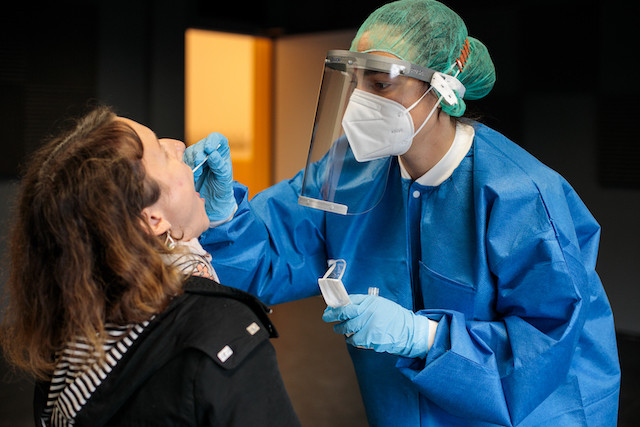Data by the government shows that the 7-day average of daily new infections reached its lowest value on 18 January at 113 cases, down from a 4 November peak of 669. But it has since slowly increased, reaching 136 cases on 28 January, the latest date available.
“The current stagnation of the daily cases and the increase in detected cases related to the UK strains are strong indicators for a potential rebound,” the covid-19 task force, a group of researchers that advises the government, said in its latest weekly report.
The national health laboratory LNS this week said that the UK mutation of the Sars-CoV-2 virus was now the third-most common among new infections (17%). In its sequences of swab samples, it detected 36 cases linked to the B.1.1.7. variant last week, a threefold increase compared to the week before.
The reproductive number, too, has risen slowly but steadily, researchers said, from 0.98 on 21 January to 1.07 this week. This corresponds to a doubling time of 7.8 days, down from 9.4 days, showing that the number of cases is increasing more rapidly.
“Overall, the epidemic status is rather critical and exhibits a strong risk for an epidemic rebound,” the task force said, urging the public to adhere to physical distancing and limit their social contacts.
Under the current dynamics, cases could once again top 500 daily new infections by May, researchers projected, similar to the situation in November. By limiting social interactions by 10% this rebound could be reduced to around 200 daily new infections.
Parliament on 29 January voted to extend current covid-19 laws until 21 February, including a nightly curfew from 11pm until 6am, a ban on gatherings of more than 100 people and restrictions such as the wearing of masks, distancing and assigned seating for groups under 100.
Other measures include the prolonged closure of restaurants and bars as well as limits to the number of customers shops or businesses--such as hairdressers or gyms--can welcome.
Education minister Claude Meisch this week warned that new measures might need to be taken depending on how the virus spreads in schools, departing from earlier assertions that educational environments posed no greater risk.
A primary school in Waldbillig was quarantined this week after a local outbreak. The entire pre-school and primary school levels at the Lycée Linster’s international branch were tested after transmission was suspected within the school. Similarly, pupils and staff at St George’s International School were tested this week after a group of administrative staff tested positive for coronavirus.
